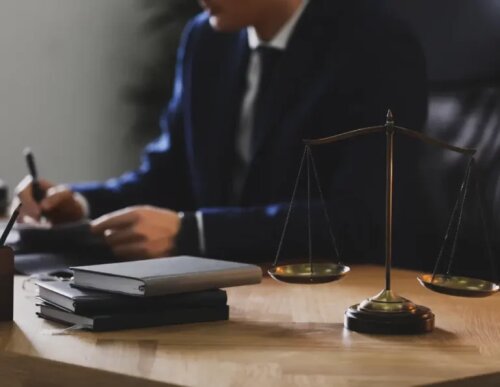Best Family Lawyers in Charlotte
Share your needs with us, get contacted by law firms.
Free. Takes 2 min.
Free Guide to Hiring a Family Lawyer
List of the best lawyers in Charlotte, United States
United States Family Legal Questions answered by Lawyers
Browse our 2 legal questions about Family in United States and read the lawyer answers, or ask your own questions for free.
- Confirming the authenticity of a divorce decree
- I'm married to a Nigerian, and I believe he provided a fake divorce decree, I need help to confirm this decree.
-
Lawyer answer by Nomos Legal Practice
Thank you and best regards, Kingsley Izimah, Esq. SK Solicitors
Read full answer - Child support laws
- If my annual salary is 4 million pesos my wife's salary is 240,000 pesos, and she lives in Rizal, how much will I pay in child support for one child?
-
Lawyer answer by Rana Fazal Muhammad Law Associates
it is the discretionary power of the court to determine the amount for the support of your child, it is not fixed amount
Read full answer
United States Family Legal Articles
Browse our 4 legal articles about Family in United States written by expert lawyers.
- Fighting Custody in Texas: US 2026 Rules for Non-Parents
- Texas has tightened "standing" rules for non-parents in child custody cases: many step-parents and grandparents who used to qualify can no longer file custody suits. Non-parents must now often show they had exclusive care and control of the child for a period of time, not just that they helped raise... Read more →
- Texas Child Support Cap 2026 - Calc Rules
- Texas raises the child support "net resources" cap from about $9,200 to about $11,700 per month starting September 1, 2025, which significantly increases guideline support for higher income parents. For 1 child, the guideline maximum jumps from about $1,840 to around $2,340 per month; for 2 children, from about $2,300... Read more →
- Divorce and Crypto in the United States 2026: Valuing Assets
- Family Law in the United States: Divorce, Crypto, and Complex Assets Family law in the United States is mostly state-specific, but federal tax rules (IRS) heavily affect how you divide assets like crypto, stock, and retirement accounts. Crypto acquired during the marriage is usually marital property, subject to division like... Read more →
About Family Law in Charlotte, United States
Family law in Charlotte, United States deals with legal issues related to family relationships, such as divorce, child custody, adoption, and more. These matters can often be emotionally charged and complex, requiring the expertise of a knowledgeable attorney to navigate.
Why You May Need a Lawyer
There are various situations where you may need a family lawyer in Charlotte, such as filing for divorce, establishing a child custody agreement, or navigating the adoption process. A lawyer can provide valuable legal advice, representation in court, and help ensure your rights are protected.
Local Laws Overview
In Charlotte, United States, family laws are governed by state statutes and case law. Common issues include equitable distribution of property in divorce cases, determining child custody arrangements, and establishing child support. It is crucial to be familiar with these laws when addressing family legal matters.
Frequently Asked Questions
Q: How long does it take to get a divorce in Charlotte?
A: The timeline for a divorce in Charlotte can vary depending on various factors, such as the complexity of the case and whether it is contested or uncontested. On average, it can take several months to finalize a divorce.
Q: How is child custody determined in Charlotte?
A: Child custody arrangements in Charlotte are typically determined based on the best interests of the child. Factors such as the child's relationship with each parent, parental fitness, and the child's preference may be considered by the court.
Q: What is the process for adopting a child in Charlotte?
A: The adoption process in Charlotte involves various steps, including a home study, background checks, court hearings, and finalization. It is recommended to work with an attorney experienced in adoption to navigate the process successfully.
Q: Can I modify a child support agreement in Charlotte?
A: Child support agreements in Charlotte can be modified under certain circumstances, such as a significant change in financial circumstances or the needs of the child. It is advisable to consult with a family lawyer to pursue a modification.
Q: How can I protect my assets in a divorce in Charlotte?
A: To protect your assets in a divorce in Charlotte, you may consider a prenuptial agreement, maintaining separate property, and keeping documentation of financial transactions. Consulting with a family lawyer can help ensure your assets are safeguarded.
Q: What are the grounds for divorce in Charlotte?
A: In Charlotte, divorce can be granted based on both fault and no-fault grounds. Common grounds for divorce include adultery, abandonment, cruelty, separation, and irreconcilable differences.
Q: Can grandparents seek visitation rights in Charlotte?
A: Grandparents in Charlotte may seek visitation rights under certain circumstances, such as when it is in the best interests of the child. The court will consider various factors, including the existing relationship between the grandparent and the child.
Q: How is property divided in a divorce in Charlotte?
A: In Charlotte, property division in a divorce follows the principle of equitable distribution, where marital assets are divided fairly but not necessarily equally. Factors such as the duration of the marriage, contributions of each spouse, and earning capacity may be considered.
Q: What is the role of a guardian ad litem in family law cases in Charlotte?
A: A guardian ad litem in Charlotte is appointed by the court to represent the best interests of the child in family law cases, such as custody disputes. They conduct investigations, make recommendations to the court, and advocate for the child's welfare.
Q: How can a family lawyer help me with my legal issue in Charlotte?
A: A family lawyer in Charlotte can provide legal advice, representation in court, negotiation with the other party, and help navigate the legal process. They can ensure your rights are protected and work towards a favorable outcome in your case.
Additional Resources
For more information on family law in Charlotte, you can visit the North Carolina Judicial Branch website, the Mecklenburg County Bar Association, or contact Legal Aid of North Carolina for assistance.
Next Steps
If you are facing a family law issue in Charlotte and require legal assistance, it is advisable to consult with a qualified family lawyer. They can assess your situation, provide guidance on your legal options, and represent your interests throughout the legal process. Take the first step towards resolving your family law matter by scheduling a consultation with a knowledgeable attorney today.
Lawzana helps you find the best lawyers and law firms in Charlotte through a curated and pre-screened list of qualified legal professionals. Our platform offers rankings and detailed profiles of attorneys and law firms, allowing you to compare based on practice areas, including Family, experience, and client feedback.
Each profile includes a description of the firm's areas of practice, client reviews, team members and partners, year of establishment, spoken languages, office locations, contact information, social media presence, and any published articles or resources. Most firms on our platform speak English and are experienced in both local and international legal matters.
Get a quote from top-rated law firms in Charlotte, United States — quickly, securely, and without unnecessary hassle.
Disclaimer:
The information provided on this page is for general informational purposes only and does not constitute legal advice. While we strive to ensure the accuracy and relevance of the content, legal information may change over time, and interpretations of the law can vary. You should always consult with a qualified legal professional for advice specific to your situation.
We disclaim all liability for actions taken or not taken based on the content of this page. If you believe any information is incorrect or outdated, please contact us, and we will review and update it where appropriate.
Browse family law firms by service in Charlotte, United States
Charlotte, United States Attorneys in related practice areas.









